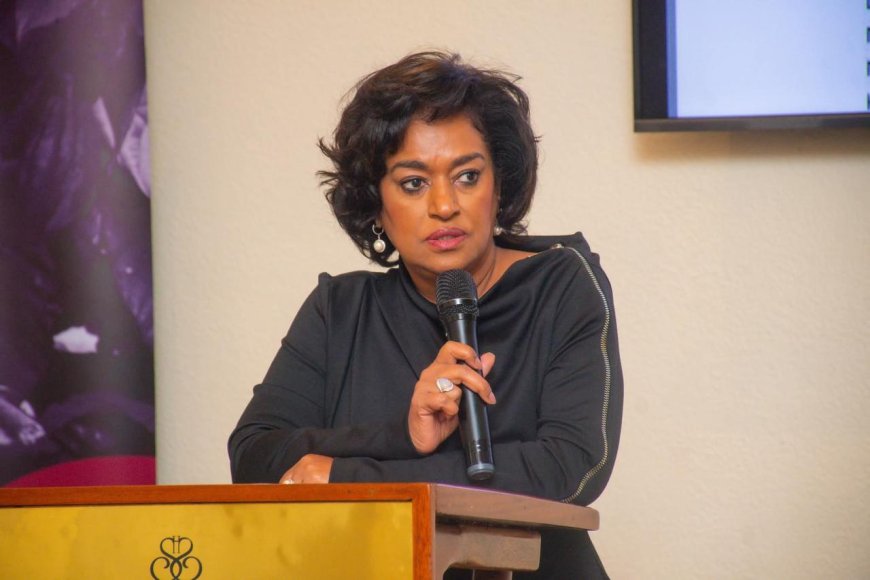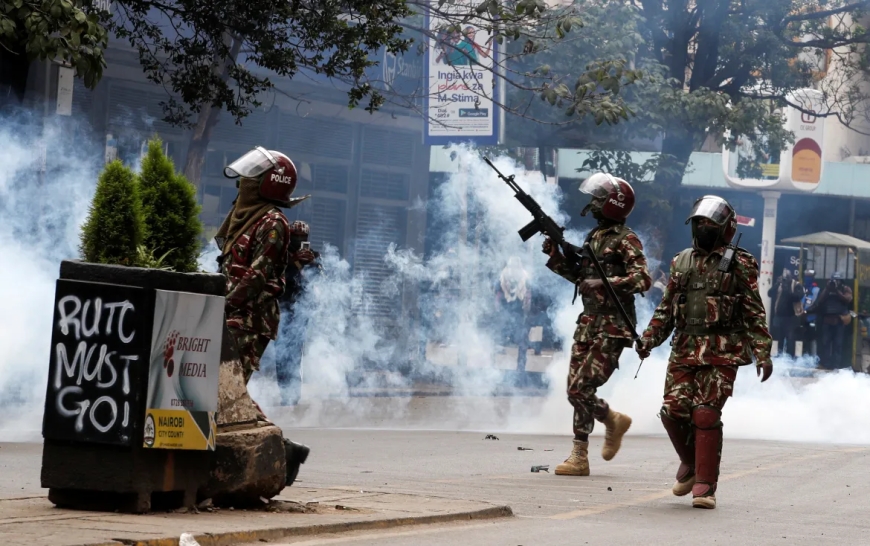Passaris Issues Update On Controversial Protests Bill Ahead Of Saba Saba
She assured, however, that she would be seeking wider public feedback on the bill — which aims to ban protests within 100 meters of government facilities — to encourage national dialogue before reintroducing it.

Nairobi Woman Representative Esther Passaris has shelved the pre-publication of her contentious protest bill for now, just before the Saba Saba Day demonstrations.
In a statement on Monday morning, Passaris explained that she decided to pause the pre-publication of the Public Order (Amendment) Bill 2025 after reflecting on a statement issued by the National Council of Churches of Kenya (NCCK) on Sunday.
She assured, however, that she would be seeking wider public feedback on the bill — which aims to ban protests within 100 meters of government facilities — to encourage national dialogue before reintroducing it.

Protesters scatter as Kenya police spray water canon at them during a protest over proposed tax hikes in a finance bill in downtown Nairobi, Kenya, June. 25, 2024. /AP
"As Kenya commemorates Saba Saba, a day rooted in our struggle for democracy and justice, I wish to respond to the call by the National Council of Churches of Kenya (NCCK) and other voices of conscience," she stated in part.
"I have decided to pause the pre-publication process of the Public Order (Amendment) Bill 2025 to allow for national dialogue and wide public engagement. This is an invitation to co-create legislation that safeguards constitutional freedoms while ensuring public order."
While she made her decision following the church’s advice, she also pushed the institution to elevate the moral tone of public debate.
She encouraged the NCCK to promote a culture of peaceful protest, lawful participation, and respectful dissent — values she said were grounded in both faith and democracy.
Passaris also called on the wider public to uphold accountability during the Saba Saba commemorations, urging everyone, including government officials, to move forward not with anger but with a sense of shared responsibility.
"A just society is not built by force or fear, but by accountability on all sides, from citizens to state officers. It is my hope that this conversation will shift from confrontation to collaboration," she added.
Dubbed the Public Order (Amendment) Bill 2025, Passaris' proposal sought to revise the current Public Order Act (Cap. 56) by placing fresh limits on where public gatherings can take place.
According to the proposal, public gatherings or processions would be banned within 100 meters of Parliament, court buildings, and any protected zones defined under the Protected Areas Act.
“A person who contravenes the provisions of this section commits an offence and shall, on conviction, be liable to a fine not exceeding Ksh100,000 or to imprisonment for a term not exceeding three months, or both,” the bill reads in part.
The bill would also empower the Interior Cabinet Secretary to establish designated protest zones, in coordination with county governments. This means specifying exactly where demonstrations can or cannot take place.
On Sunday, the NCCK called on security forces to respect protesters’ rights ahead of the planned commemoration of the July 7, 1990, rally that launched Kenya’s path toward multiparty democracy.
It condemned ongoing attempts by police and other government officials to strip Kenyans of their right to protest, as well as Interior Cabinet Secretary (CS) Kipchumba Murkomen’s order to open fire on demonstrators.







